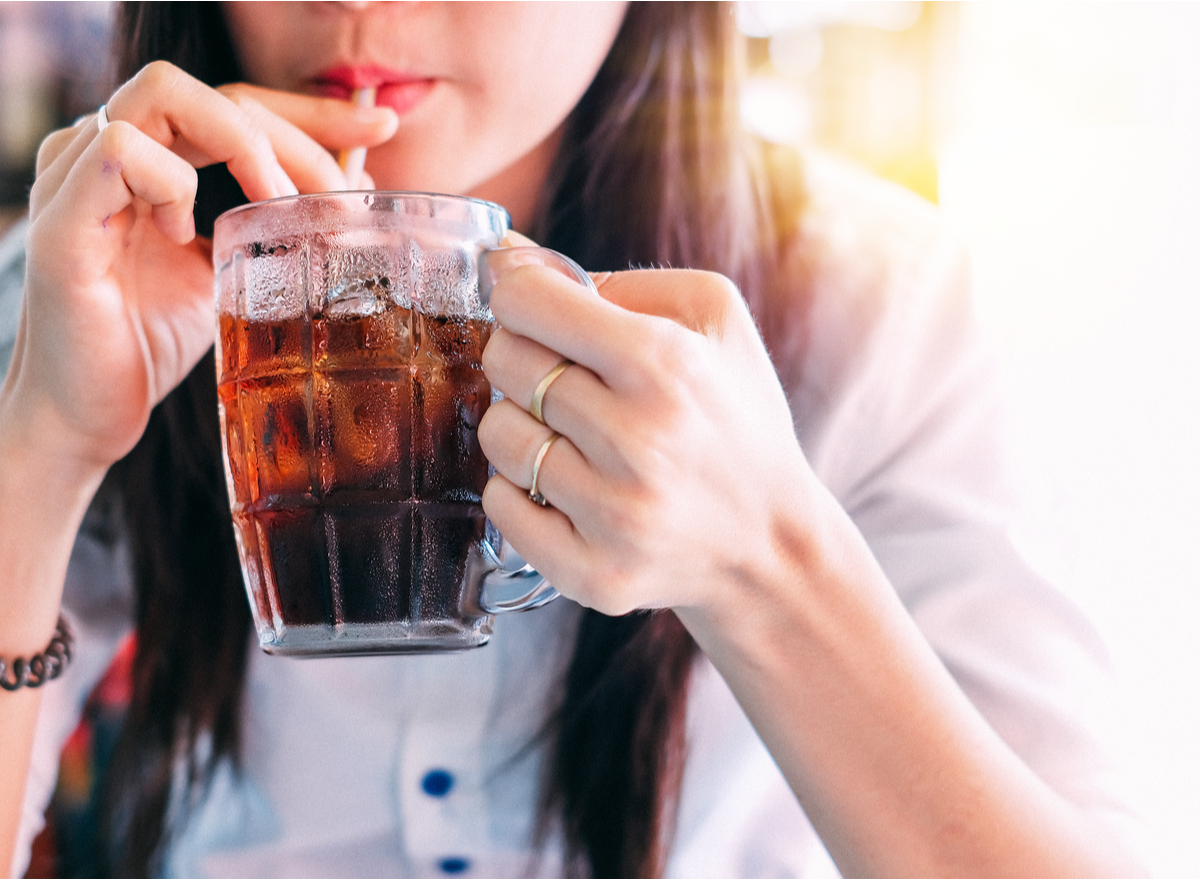The #1 Worst Drink That Increases Belly Fat, Says Science

Did you know not all fats are equal? Subcutaneous fat is the type of fat that lies right under your skin and can form in different parts of your body like your thighs, your hips, and your arms. Visceral fat, on the other hand, is the type of fat that accumulates around your organs beneath the abdominal cavity—and it’s known to be more dangerous.
An increase in visceral fat can result in many more health problems compared to growing subcutaneous fat. Heart disease, diabetes, and high cholesterol are just a few examples of health issues associated with visceral fat.
This type of fat can be hard to measure and to see, so what should you look out for if you want to avoid building up visceral fat? Sugar-sweetened beverages, like soft drinks, are one of the worst culprits.
Sugar consumption in the United States has increased over 40-fold since 1750, and 24% of added sugar consumption comes from sugar-sweetened beverages like soda, fruit juices, and sports drinks.
Particular ingredients in sugar-sweetened beverages matter for visceral fat accumulation.
While sugar consumption has increased, researchers have been able to determine specifics as to why sugar-sweetened beverages in particular are considered the worst drink to have for visceral fat.
First, the types of ingredients in a sugar-sweetened beverage matter. A 2009 study from The Journal of Clinical Investigation compared adults consuming either glucose-sweetened drinks or fructose-sweetened beverages for 10 weeks. Researchers found that consumption of fructose lies behind the accumulation of visceral fat in overweight adults, not glucose. Additionally, fructose also decreases sensitivity to insulin and increases the chances of dyslipidemia, an overflow of fats in your bloodstream.
Second, another 2013 study from the BMJ reveals that the link between sugar-sweetened beverages and visceral fat isn’t just limited to overweight or obese subjects. After 10 weeks of consuming fructose drinks, adult subjects showed more visceral fat. Meanwhile, drinks with the same amount of glucose didn’t show an increase in visceral fat in the subjects.
More recent research from the British Journal of Nutrition has indicated that children are not immune to the effect of sugar-sweetened beverages. When children drank over two servings of sugar-sweetened beverages per day, they were more likely to develop visceral fat.
In conclusion, the high consumption of fructose (such as beverages with high fructose corn syrup) within sugar-sweetened beverages seems to be the issue when it comes to visceral fat accumulation in the body.
While more research is still to be done, it’s still important to keep the number of sugar-sweetened beverages you consume at a minimum. If you’re in search of alternative drinks with no fructose, try unsweetened drinks like green tea, which research proves can decrease visceral fat.
For more tips regarding visceral fat, read these next:






